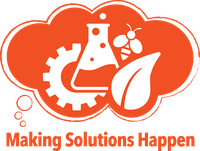Courses for undergraduate students in entrepreneurial mindset, leadership and new ventures.
Management 215 – Entrepreneurial Mindset
- This course provides the opportunity to learn to think like an entrepreneur in the broader context of social entrepreneurship, intrapreneurship, creative problem solving, opportunity recognition, and innovation.
- The skills and attributes of an entrepreneurial mindset can be used to expand career options and career paths for students in any major
- Students will develop self-efficacy, leadership, recognition of new opportunities, resourcefulness, creativity and comfort with ambiguity.
- Further, this course will help students develop an appreciation for mistakes and failure as valuable learning opportunities.
- Through experiential exercises and problem-based learning the student will be afforded the opportunity to study, apply and absorb an entrepreneurial mindset as an approach to viewing the world, to recognizing opportunities and to developing novel solutions.
- After taking this course the student, regardless of a student's major or college, will have a greater understanding of how to apply entrepreneurial thinking to problems and adopt entrepreneurial solutions to those problems to transform them from problems into opportunities.
Engineering 310 – Entrepreneurial Leadership
- This course develops leadership and entrepreneurial skills using collaborative, problem-based projects, with engineering and business students working in teams.
- This is a problem-based learning course, as learning by doing is fundamental. Faculty members serve as mentors for student team activities and projects.
- Teams are composed of students from colleges across Penn State, especially in engineering, business and IST.
- Clear expectations are set for students to take charge of their own learning. Written and oral communication skill development is a key objective. Leaders and entrepreneurs must be clear, persuasive speakers and writers.
- From the first day of class, constructive feedback is provided after each presentation to improve quality, persuasion, and "thinking-on-your-feet" skills.
- Completion of a course portfolio, idea journal, and weekly class analysis reports are required.
- The first half of the course focuses on leadership skill development, including understanding leadership theory, individual leadership styles, group and organizational leadership, the role of values and ethics, and life cycles of organizations.
- The last half of the course focuses on entrepreneurship, including basic market research, product prototyping, strategic planning, business feasibility analysis, basic costing and financial analysis, grant proposal or business plan generation, and final project presentations as part of the College of Engineering Design Showcase.
ENGR (MGMT/IST/ENTR) 425 – Introduction to Entrepreneurship
• Via problem-based learning, teams define new business ventures to meet current market needs, develop business plans, and present to investors.
• The goal is to better prepare undergraduate students to be business leaders in adaptive, globally-minded, technology-savvy companies.
• The course is structured so students develop skills that are of high value in any workplace: improved leadership skills, higher self-efficacy, creativity and the ability to deal with ambiguity.
• On course completion, students will have a working knowledge of traditional and non-traditional ways for identifying a new product or business opportunity, quantifying the potential, understanding the key competitive factors, researching the audience and producing a convincing executive summary for internal or external financing and launch.
• Students who want to augment the skills and knowledge from their major with the ability to refine a new product/service process in an interdisciplinary team will find ENGR (MGMT/IST/ENTR) 425 a valuable course.This is a novel, problem-based learning (PBL) course, where the learning is student-centered, with faculty acting primarily in the role of facilitators.
• Active learning happens in this course because students develop ownership in their new business venture concept and are fully responsible for the genesis of the idea.The course leverages the on-line course management system (ANGEL) to define weekly learning objectives, support electronic delivery of assignments, robust video content with entrepreneurs is provided on CD-ROM or via ANGEL, providing additional insights into entrepreneurship.
• The technology or business segment focus of the class is easily adapted by using different case studies and course mentors. This will be one of two courses in the new two-course sequence for business students in entrepreneurship.
• This is one of two courses in the new two-course sequence for business students in entrepreneurship. This course will be accepted as a supporting course in the Engineering Entrepreneurship Minor (E-SHIP) and in the Engineering Leadership Development Minor (ELDM). MGMT (IST/ENGR/ENTR) 425 can be used as a technical elective in many of the engineering departments. It will be accepted as a Support of Option course for the Information Sciences and Technology (IST) major.
AGBM 445 – AgTech Entrepreneurship
- AgTech start-ups are being funded at a record pace, with several billion dollars invested in start-ups that address needs in food, agriculture and bio-renewables.
- The AgTech start-ups investment trend is likely to continue as venture capital fund managers and angel investors recognize the transformative power of entrepreneurship and innovation in Agriculture.
- AgTech entrepreneurs are viewed as the change agents for our next innovative age in agriculture as we seek to feed the world with more people and fewer resources.
- AG BM 445 will provide students with an introductory overview of entrepreneurship in AgTech, a basic understanding of entrepreneurial concepts and address whether an entrepreneurial career suits their interests.
- The course utilizes a blend of brief lecture content, student discussion, interaction, team projects and hands on exercises that help build student comfort with ambiguity, uncertainty and complex problem solving.
Social Media

Social Media


